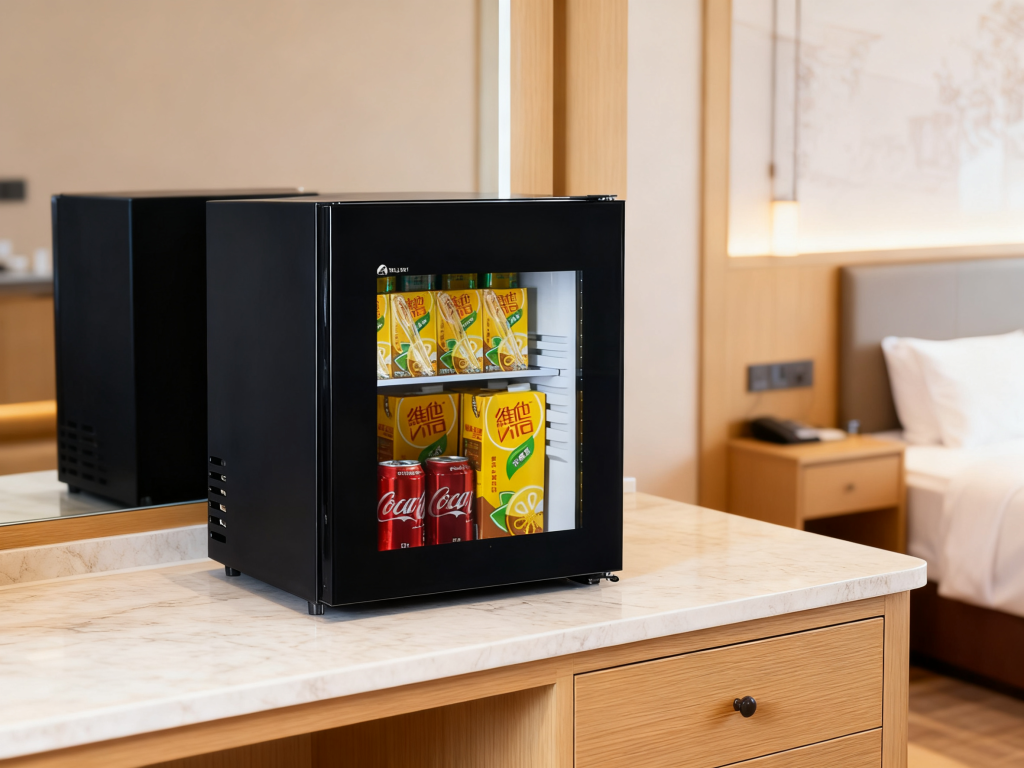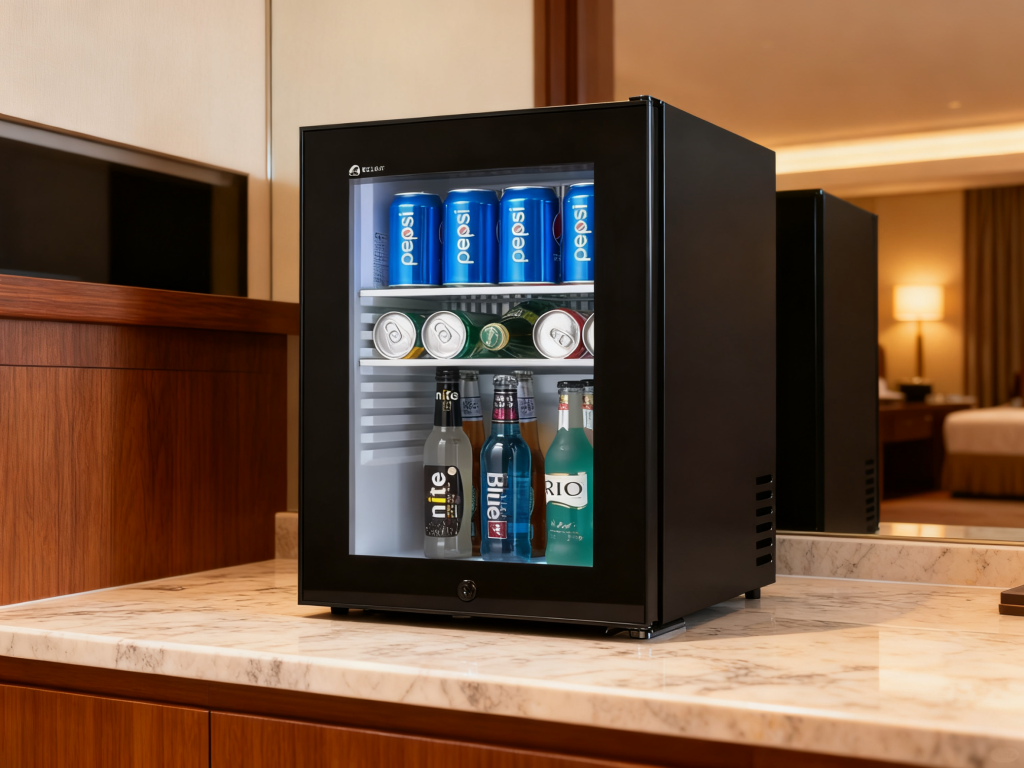In the competitive hospitality industry, the in-room mini bar is not only a convenience—it is an opportunity to enhance guest satisfaction and increase hotel revenue. A well-managed and thoughtfully stocked mini bar reflects your brand’s attention to detail and helps create a more memorable stay. To make the most of this valuable feature, hotels need to adopt smart strategies that balance efficiency, profitability, and guest experience.
Before deciding what to stock, it’s essential to start with the right equipment. A high-quality hotel mini bar refrigerator is the foundation of efficient operations and guest comfort. When selecting the ideal unit, focus on several key factors:
First, consider noise level and cooling performance. Guests expect a peaceful environment, so a silent or low-noise refrigerator that maintains stable cooling is essential. Energy efficiency is also important, as it reduces operating costs and aligns with modern sustainability standards.
Next, evaluate size and design. Mini bar refrigerators come in different styles—built-in, free-standing, glass-door, or solid-door models—so choose one that complements your room layout and interior design. For upscale or boutique properties, a custom-finished unit can even reinforce your brand image.
By choosing the right mini bar equipment, hotels can reduce maintenance costs, improve reliability, and deliver a more comfortable guest experience.

A successful mini bar strategy begins with understanding your guests. Avoid a one-size-fits-all approach and instead adjust the contents to your target market.
For example, business travelers may prefer bottled water, sparkling drinks, or healthy snacks to keep them energized during long meetings. Leisure guests might appreciate local beverages, premium wines, or indulgent treats. For family-oriented properties, non-alcoholic drinks, juice boxes, and kid-friendly snacks can add thoughtful value.
Besides, adjust the assortment by room category. Luxury suites can feature top-shelf liquors, artisan chocolates, or gourmet snacks, while standard rooms can offer a more curated but affordable selection.
It’s also wise to maintain clear and transparent pricing. Guests are more likely to make a purchase when they understand the cost upfront. Overpricing or hidden fees can discourage use and create frustration. Focus on a well-balanced, profitable mix—offering fewer but higher-turnover items will reduce waste and simplify restocking.
Consistency in quality and presentation is what differentiates an average mini bar from an exceptional one. Regular maintenance ensures both reliability and hygiene.
Housekeeping teams should check the refrigerators daily to verify cooling performance, cleanliness, and expiration dates. Outdated or damaged items should be replaced immediately. Clean shelves, neat arrangements, and easy-to-read price tags make a strong impression on guests.
Beyond aesthetics, ensure each unit operates efficiently. Silent, energy-saving refrigerators not only improve guest comfort but also reduce the hotel’s overall energy footprint. Scheduled maintenance for door seals, thermostats, and internal lighting will extend equipment lifespan and minimize costly breakdowns.
Your hotel mini bar can become both a guest amenity and a source of steady profit. The key is to find a pricing balance that feels fair to guests while generating healthy margins for your property.
Base your pricing on the total cost of goods, including procurement, storage, and restocking, then add a reasonable markup. Competitive benchmarking—comparing prices with other hotels in your category—can help guide your strategy.
You can also introduce tiered options to appeal to different budgets, such as offering both standard and premium beverages or snacks. Seasonal or themed items—like romantic packages, local specialties, or holiday treats—can boost perceived value and enhance the guest experience.
To encourage purchases, consider exclusive promotions for loyalty members or discounted bundles for extended stays. These thoughtful touches not only increase sales but also strengthen guest relationships.

Smart hotels use technology to make their minibar management easy. Advanced mini bars equipped with sensors can automatically record when an item is removed, ensuring accurate billing and reducing human error.
Integration with property management systems allows real-time tracking of inventory and guest consumption. This data can reveal which products sell fastest, which rooms generate the most minibar revenue, and where losses occur. With this insight, hotel managers can make better decisions about stocking, pricing, and future purchasing.
Technology also supports sustainability. Energy-saving refrigerators and digital monitoring systems help reduce electricity usage and waste, aligning with eco-friendly hospitality trends.
Managing and stocking a hotel mini bar effectively requires more than routine refills—it’s a mix of smart equipment choices, strategic planning, operational discipline, and modern data insights.
By investing in reliable mini bar refrigerators, customizing product offerings for different guest segments, maintaining strict hygiene and organization, and applying technology for real-time management, hotels can enhance guest satisfaction and create new streams of revenue.
In the end, a well-managed mini bar is a convenience and a reflection of your hotel’s quality, attention to detail, and commitment to exceptional guest experiences.
Recent postsLearn More